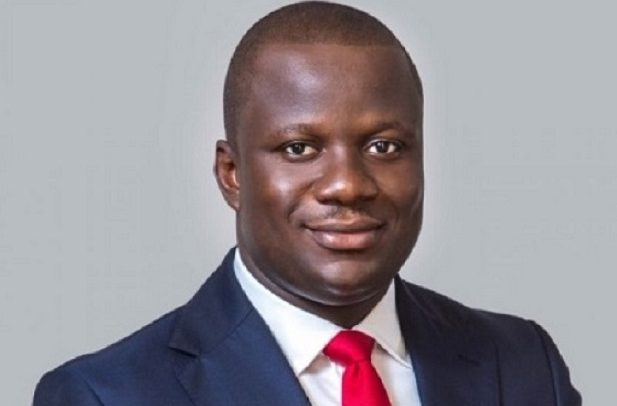Jinapor
The Member of Parliament (MP) for Damango and Minister for Lands and Natural Resources, Samuel Abdulai Jinapor, says the 1992 Constitution risk being defiled by misinterpretation of provisions on parliamentary ‘quorum for doing business’ and ‘quorum to take a decision.’
According to him, Article 102 and Article 104 are clearly distinct on the issue of quorum, intimating that under Article 104, the framers of the constitution engendered that the person presiding ought not to be excluded for the purposes of a quorum pertaining to taking a decision.
Article 102 of the 1992 Constitution says, “A quorum of Parliament, apart from the person presiding, shall be one-third of all the members of Parliament,” whilst Article 104 (1) says, “Except as otherwise provided in this Constitution, matters in Parliament shall be determined by the votes of the majority of members present and voting, with at least half of all the members of Parliament present.”
He said on the floor of the House that “Mr. Speaker, it is needless to point out that this quorum pursuant to Article 102 is quorum for conducting business,” adding “in that respect, may I respectfully refer the House to the book written by Jurists, J B Ayensu and S N Darko on introduction to law practice and procedures of Parliament.”
“That is clearly stated the distinction between the quorum for conducting business. Mr. Speaker, I quoted Article 102 and fortified it with an authority. I will pardon my senior brother,” he asserted in reference to NDC MP for Asawase, Mohammed-Muntaka Mubarak, who interrupted that his colleague had quoted from a book instead of the constitution.
The First Deputy Speaker, Joseph Osei-Wusu, who was presiding in the absence of Speaker Bagbin, asked the NPP MP to continue with his submission since the Asawase MP was ‘out of order.’
The Lands Minister further argued that “whereas in Article 102 the framers of the constitution deliberately mentioned the person presiding for purpose of quorum for conducting business, in Article 104, the framers of the constitution deliberately omitted the mentioning of the person presiding for purposes of quorum for decision.”
“Mr. Speaker, with the greatest of respect, the first year student of the class of interpretation will be taught the cannon of true interpretation which states, ‘Express mention of a thing implies the exclusion of all others. If the framers of the constitution engendered that the person presiding ought to be excluded for the purposes of a quorum pertaining a decision, they would have said so expressly,” he stressed, and said “Mr. Speaker, that is the law.”
Order Precedence
On the issue of order of importance, the Damango MP referred the House to Article 57(2) of the constitution which states, “The President shall take precedence over all other persons in Ghana; and in descending order, the Vice President, the Speaker of Parliament and the Chief Justice, shall take precedence over all other persons in Ghana.”
“Article 20 of the constitution where it talks about succession, the framers of the constitution talk about the President, Vice President, and Speaker. They deliberately omitted the Chief Justice on the principle that I have enunciated: – You cannot include the Chief Justice in Article 60, and that is what falls under Article 102 and 104.”
“Further on, Mr. Speaker, any careful examination of the 1992 Constitution as a whole, you will realise that the framers of the constitution keep using Speaker, First Deputy Speaker, Second Speaker and the person presiding,” he added, saying “they don’t use them interchangeably.”
He said on the matter of quorum, Parliament had an occasion to deal with it succinctly, and quoted from the Hansard of Tuesday, December 22, 2015, where the same matter came up for consideration.
“It is instructive to note the current Speaker of Parliament, Rt. Hon. Alban Sumana Bagbin had something to say about this particular matter we are discussing in this Chamber,” he said.
Mr. Jinapor said the Speaker at the time, Edward Doe Adjaho, gave a ruling on that litigation.
He insisted that, “There is quorum to do business and that is one-third of the House, and there is a quorum to take a decision. So we need to draw a distinction between the quorum to do business and the quorum to take decision.”
“The quorum to take a decision is regulated by Article 104 (1). The fundamental question is that the time that the vote was taken, did we have half of the Hon Members present? It is a constitutional issue which has to be captured in Standing Order 109. If we go by the head count by adding 67 to 66, we will get 133. Therefore, there is a serious constitutional issue here. So at the time that the votes were taken this House lacked the legal, in fact the constitutional capacity to take a decision.”
“I quite endorse the position taken by the Hon First Deputy Speaker that we do not have the number, constitutionally speaking, to take a decision. Therefore, no decision has been taken,” he buttressed his arguments.
By Ernest Kofi Adu, Parliament House

